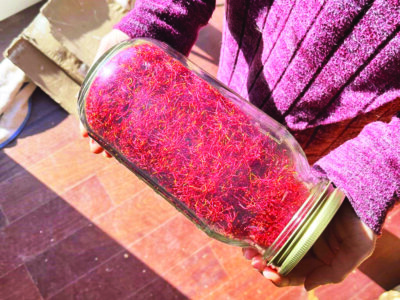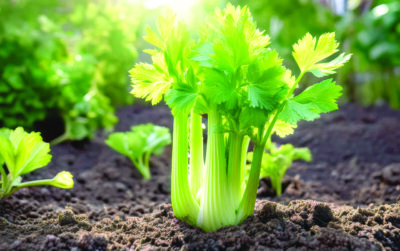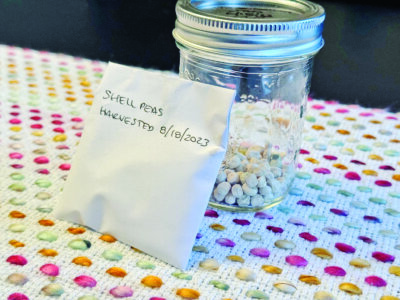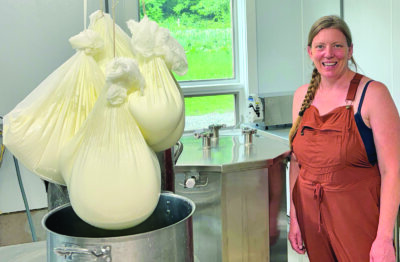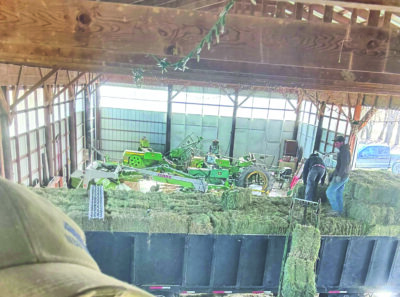What Vermont advocates want to see in next Farm Bill
When it comes to the Farm Bill, Vermonters know where their priorities lie.
Agricultural, food and nutrition advocates in the state want to see increased focus on climate, protection for nutrition initiatives and stronger support for small-scale growers and dairy farmers, among other things, in the next bill.
The Farm Bill is a federal package of legislation affecting producers and consumers across the country. Renewed every five years, the bill has been expired now for over two months since its Sept. 30 end date.
While a lapse is not unheard of, some unique circumstances in Congress this year have led to a longer delay, said Maddie Kempner, policy director for the Northeast Organic Farming Association of Vermont. One of those has been the battle over a new speaker of the House among House Republicans.
In November, after the leaders of the House and Senate agriculture committees said they wanted to extend the current farm bill for one year, President Joe Biden signed a stopgap funding bill to keep money flowing into programs for which funding would otherwise end. In a press release, Sen. Peter Welch, D-Vt., announced his vote in favor of the extension.
“Tonight, I voted for a continuing resolution to avert a government shutdown that would have been disastrous for hardworking Vermonters and families across the country,” he wrote on Nov. 15. “This short-term funding bill will also avoid major upheaval for farmers and producers and provide certainty by ensuring important Farm Bill programs are extended for one year as we continue work to pass a bipartisan, multi-year Farm Bill.”
Welch’s position on the Senate Agriculture Committee — one of the major committees that helps write the Farm Bill — primes Vermont to play a role in shaping the next bill.
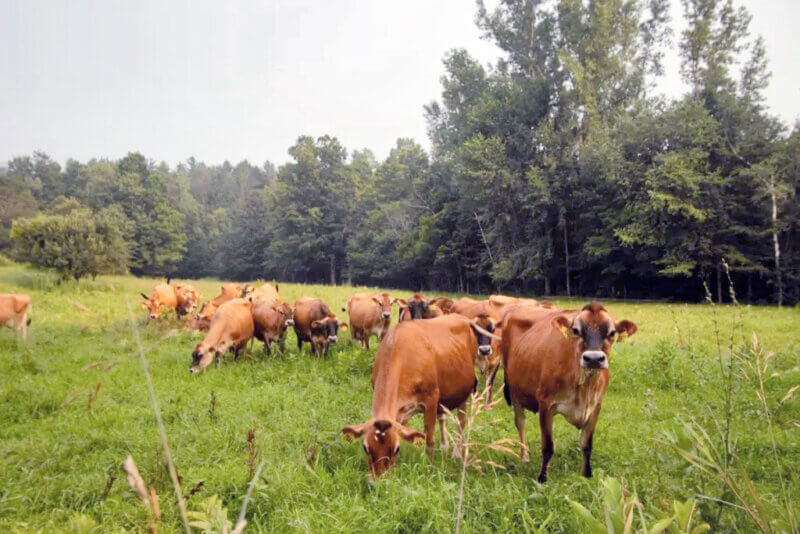
The House and Senate agriculture committees are aiming to pass the new bill between May and July, ahead of the November 2024 elections, said Kempner. The one-year extension should provide a safety net to hold programs over until then.
The extension is particularly important for newer, smaller programs that don’t have a permanent baseline — mandatory, built-in funding extending beyond the bill’s expiration date. The one-year extension is providing 19 of 21 orphan programs in the 2018 bill with $177 million.
“One of those that we’ve been specifically concerned about is the Organic Certification Cost Share program,” said Kempner.
The program, which reimburses certified organic producers for a portion of their certification fees, is especially important for smaller-scale producers, said Kempner.
On the other hand, more established programs like SNAP, or the Supplemental Nutrition Assistance Program, do have set funding put aside to last past the bill’s expiration. The nutrition title comprises about 80 percent of the Farm Bill, with the remaining 20 percent split among other categories such as crop insurance, credit, rural development and conservation.
But adjustments to SNAP in the June Fiscal Responsibility Act — or the debt ceiling bill — such as the expansion of certain work requirements aroused worry.
“The harm that occurred to SNAP in that bill, I think, unfortunately is a bit of foreshadowing for the debate to come once the Farm Bill is more of a leading priority for Congress,” said Ivy Enoch, food security advocacy manager at Hunger Free Vermont.
Enoch stressed increased eligibility requirements, including better reconciliation of eligibility with Vermont’s high cost of living, as a nutrition priority for Vermonters.
“The federal income limit is 130 percent of the federal poverty line,” said Enoch. “Luckily, in Vermont, our eligibility requirement is set at 185 percent of the federal poverty line, which essentially means that more people in our state can qualify for this program, but that doesn’t account for the increased costs of living.”
Kempner thinks the 2018 bill had some wins as well, many of which involved the lumping of some programs into larger ones and giving them a permanent baseline status. The Farmers Market Promotion program is one example of this.
But Welch and Vermont food and farm advocates believe there is still work to be done on many fronts.
“Vermont has a long, storied tradition of agriculture and farming,” said Welch in a statement to Community News Service. “It’s critical that we have a bipartisan, multi-year Farm Bill that supports our farmers and producers, helps support rural communities combat climate change and strengthens the nutrition programs that families in our state and across the country rely on.”
When the Vermont Farm Bill Nutrition Coalition sent out surveys in 2022 to community members and service providers across the state asking for feedback on the bill’s nutrition programs, over 600 people responded. The coalition organized the feedback into a final set of priority recommendations, which includes protecting nutrition program funding and expanding SNAP access.
“Hundreds of folks signed on in support of our policy priorities,” said Enoch, “and I can say confidently that folks are also reaching out directly to our delegation to make sure that their voices are being heard.”
There is also a push from Northeast Organic Farming Association to branch away from big, industrial agriculture and channel some of that money towards more small-scale, organic farming.
“The vast majority of funding and the Farm Bill through the agricultural titles still really goes to support large-scale, industrial and monoculture operations,” said Kempner. “So, we’re continuing to work in the next Farm Bill cycle to try to redirect some of those resources to go to more small-scale, diversified beginning farmers and organic operations.”
The changing climate and its impact on farmers is another factor Vermonters are considering in the upcoming bill. Just this summer, Vermont farmers lost an estimated $12.3 million from the floods, representing 30 percent of their annual income on average, according to a survey put out by the Vermont Agency of Agriculture, Food & Markets in August.
Kempner stressed the importance of taking into account the changing environment, especially because the bill will stay in effect for five years.
“It’s really critical for Vermont producers and all Vermonters that this Farm Bill be a climate bill,” said Kempner.
Kempner pointed to one potential inclusion in the bill: the Agriculture Resilience Act. She said the act will help pivot the agriculture system from one that’s a net emitter of greenhouse gases to one that helps mitigate climate change and make communities and farms more resilient.
Increased support for the Organic Certification Cost Share Program and ensuring people have equitable access to land and credit are also priorities Kempner hopes to see in the next bill.
“There are steps that we can take in the next Farm Bill to make land more affordable and more accessible to people trying to get into farming, while also providing ways for farmers who are looking to retire to get out of farming and have a safety net under them to do that,” said Kempner.
Welch has introduced a slew of acts ranging from the Invasive Species Prevention and Forest Restoration Act with Rep. Becca Balint, D-Vt., to the Organic Dairy Assistance, Investment and Reporting Yields Act (O DAIRY) Act with Sen. Bernie Sanders, I-Vt. The acts are under negotiation for the upcoming Farm Bill.
“I am proud that Vermont will have a seat at the table for our next Farm Bill, and I look forward to working on this must-pass bill,” said Welch in his statement to Community News Service.
(The Community News Service is a program in which University of Vermont students work with professional editors to provide content for local news outlets at no cost.)
Related Stories
Popular Stories
If you enjoy The Charlotte News, please consider making a donation. Your gift will help us produce more stories like this. The majority of our budget comes from charitable contributions. Your gift helps sustain The Charlotte News, keeping it a free service for everyone in town. Thank you.
Andrew Zehner, Board Chair




